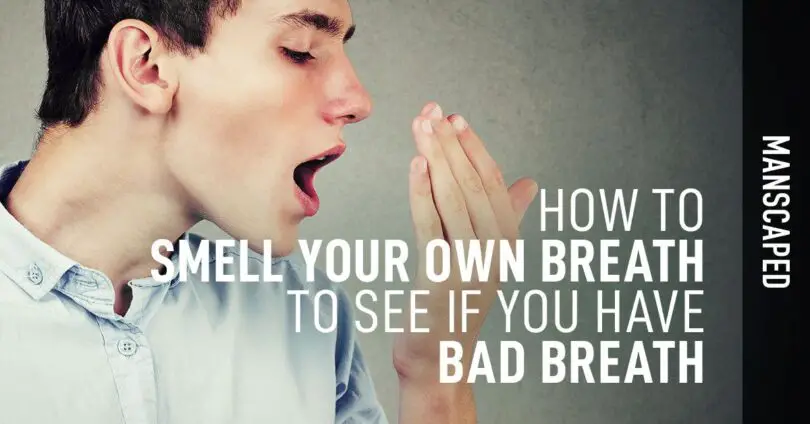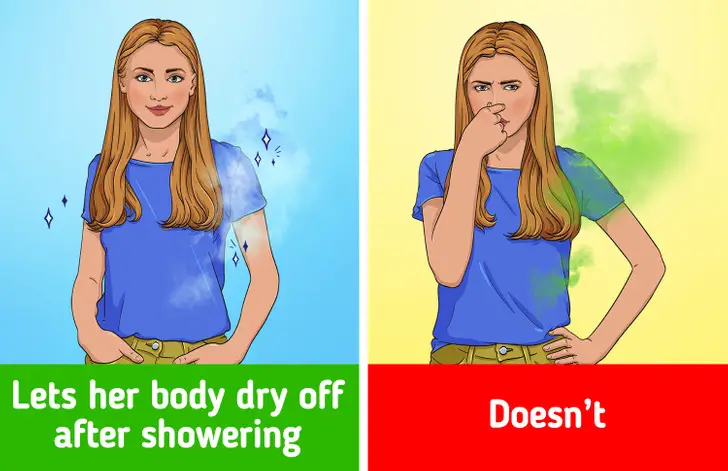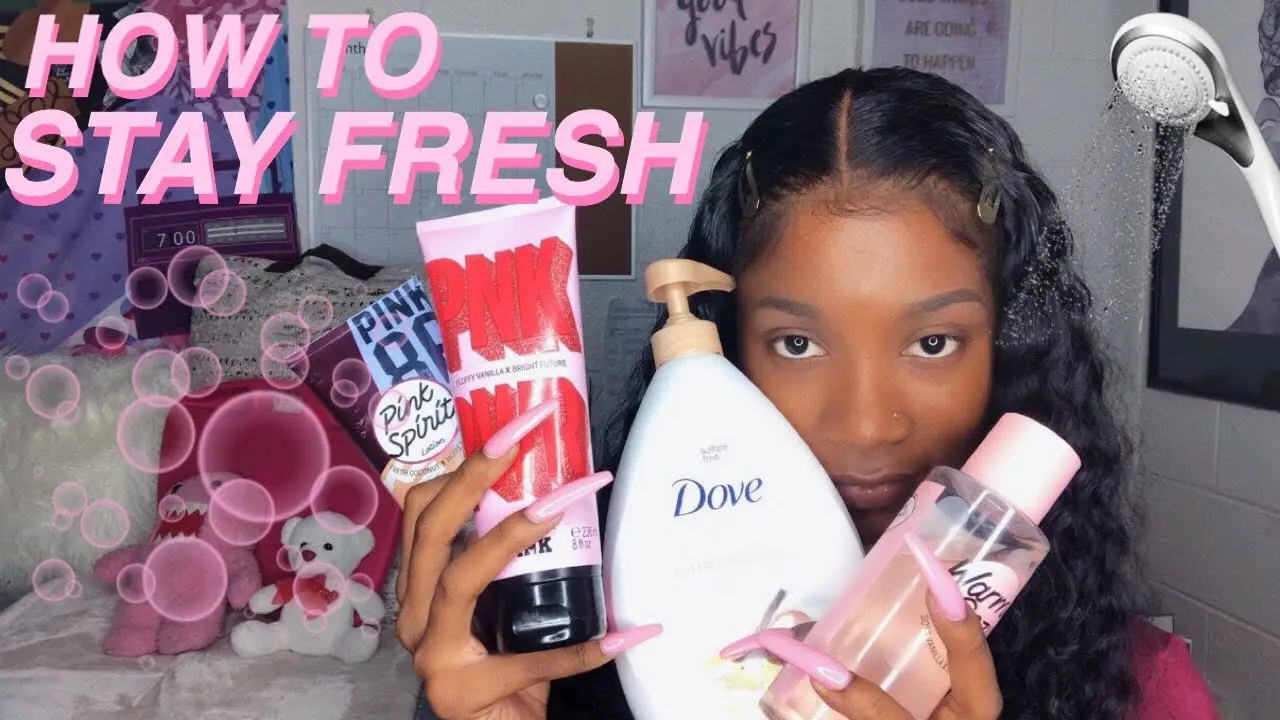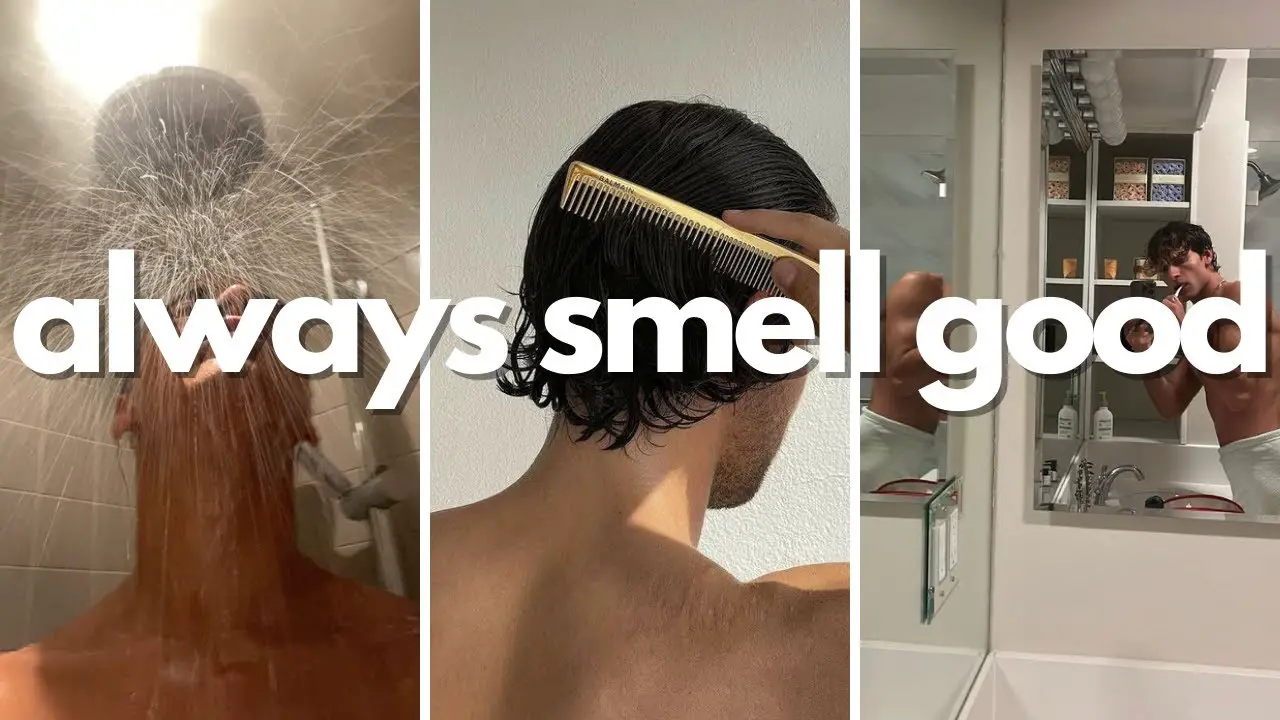The simplest way to smell your own breath is by cupping your hand and blowing into it. Another effective method is using a dental floss or tongue scraper to remove any food or debris from your mouth, and then giving it a sniff.
Maintaining good oral hygiene is important not only for the health of our teeth and gums, but also for avoiding bad breath. However, even with regular brushing and flossing, it is still possible to have bad breath. This can be embarrassing in social situations and affect our confidence.
Knowing how to check our own breath is a practical skill that can be useful in these situations. In this article, we will explore various methods for smelling our own breath, as well as tips for preventing bad breath.

Credit: www.amazon.com
Why Smelling Your Own Breath Is Important
Smelling your own breath may seem awkward, but it’s incredibly important for your oral hygiene. Ignoring your bad breath has consequences, such as a decrease in confidence levels. It’s vital to take notice of your breath odor because it can indicate underlying health issues.
Bad breath is caused by bacteria in your mouth and can be remedied with good oral hygiene. In addition, certain foods can cause foul odors, so it’s best to pay attention to what you eat. A simple way to check your breath is to exhale into your cupped hands and take a whiff.
If you notice a foul smell, it’s time to take action. Maintaining a clean and healthy mouth will not only keep your breath fresh but also prevent other oral health issues.
Causes Of Bad Breath
Bad breath is a common issue that can be caused by poor oral hygiene. While it’s easy to blame the foods and drinks we consume, most odors can be traced back to bacteria located in the mouth. Bacteria create odors when they break down food particles and cause decay.
Brushing and flossing daily is essential in eliminating odors caused by poor oral hygiene. Certain foods and drinks, such as garlic and coffee, contain compounds that are absorbed into the bloodstream and released through the breath. To avoid bad breath, try to avoid these foods and choose healthier options.
In addition, it’s important to stay hydrated by drinking plenty of water to wash away odor-causing bacteria.
Tips For Improving Your Breath
Improving your breath can make all the difference in your personal and professional interactions. One simple way to freshen up your breath is to drink plenty of water. Water helps to flush away any bacteria that may be lingering in your mouth, as well as promoting the production of saliva, which naturally helps to clean your teeth and freshen your breath.
Additionally, incorporating the use of mouthwash into your oral hygiene routine can help to destroy any germs or bacteria that might be causing bad breath. While it’s natural to be self-conscious about your breath, following these easy-to-follow tips can help to improve your breath and give you the confidence to go about your daily routine without worry.
Natural Remedies For Fresh Breath
One of the most bothersome issues we all face is bad breath. Thankfully, there are natural remedies available to combat this problem. One well-known method is chewing gum, but it’s essential to pick sugar-free ones to avoid further damage to your teeth.
Another excellent choice is herbs and spices, particularly cinnamon and mint, as they are known for their breath-freshening properties. These remedies are effective and useful for being chemically safe for the body as well. So, if you’re worried about your bad breath, opt for these natural remedies instead of over-the-counter solutions.
Frequently Asked Questions Of What’S The Best Way To Smell Your Own Breath
How Can I Check My Breath For Bad Odor?
One way to check for bad breath is to lick the back of your hand and smell it after it dries. Another way is to use a disposable dental flosser to clean your teeth and smell the floss afterward.
How Often Should I Check My Breath Odor?
It’s a good idea to check your breath odor at least once a day, especially after eating or drinking something strong-smelling. If you notice persistent bad breath, you should see a dentist or doctor to rule out any underlying health issues.
What Causes Bad Breath Despite Good Oral Hygiene?
Bad breath can be caused by a number of factors, including dry mouth, certain foods and beverages, smoking, gum disease, and medical conditions such as sinus infections and acid reflux. Even if you practice good oral hygiene, you may still experience bad breath.
Do Breath Mints And Gum Help Freshen Bad Breath?
Breath mints and gum can help freshen your breath temporarily, but they are not a long-term solution. In fact, many breath mints and gums contain sugar, which can contribute to tooth decay and bad breath. It’s best to address the underlying cause of bad breath rather than rely on minty fresheners.
What Foods And Drinks Can Cause Bad Breath?
Foods and drinks such as garlic, onions, coffee, and alcohol can cause bad breath. These strong-smelling substances can linger in your mouth long after you’ve consumed them, leading to persistent bad breath. Drinking plenty of water and practicing good oral hygiene can help mitigate the effects of these foods.
Conclusion
Overall, there are a few simple yet effective ways to gauge the quality of your breath. Whether it’s smelling your floss or checking your tongue for any red flags, it’s important to maintain good oral hygiene in order to prevent bad breath.
Remember to brush twice a day, floss daily, and schedule regular dentist appointments to keep your teeth and gums healthy. Additionally, watch what you eat and drink, as certain foods can lead to bad breath. Finally, don’t be afraid to ask a close friend or family member for an honest opinion on your breath.
By following these tips and being mindful of your oral health, you can ensure fresh breath and a bright smile.









